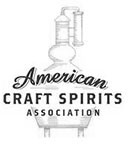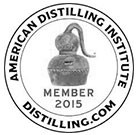Ultra Pure has one of the largest portfolios of Aged Bourbon, Rye Whiskies and Canadian Whiskey. Our decades long experience and relationships through our vast network of distilleries offers you the largest selection at the best cost.
Inventory
Inventory
Kentucky, Indiana, Texas, North Carolina, Wyoming, Access to new fill, ages one year to four year, availability changes daily.
Financing
Financing
We understand your needs and offer tailored financing options for our qualified customers.
Warehousing
Warehousing
When you purchase from Ultra Pure all of your warehousing and logistic services are included. Take advantage of the most competitive storage and insurance fees through our volume discounts.
What exactly is whiskey?
Whiskey is a distilled alcoholic drink made from fermented grain mashes. They’re typically aged in charred oak barrels until they reach their desired production age. The most common grains used to make whiskey include corn, barley, rye, and wheat.
What makes whiskey a whiskey?
Whiskey is defined as an alcoholic beverage distilled from grain and aged in wood barrels. There must be no added flavoring for a whiskey to be a whiskey; all the flavor must come from the barrel the whiskey is aged in. … A whiskey’s mash is the mixture of grains used in the distilling process.
What is difference between whisky and scotch?
Whiskey is the correct spelling for American and Irish-made whiskey, and whisky is the spelling for the Canadian, Japanese, and Scottish-made versions. Scotch is whisky made in Scotland from either barley or a mix of grains. … Single malt Scotch is a whisky that’s from one distillery from a mash of malted barley.
Here’s where the main 5 whiskey types come from.
- Scotch – Scotland.
- Bourbon – USA.
- Irish Whiskey – Ireland.
- Canadian Whiskey – Canada.
- Japanese Whisky – Japan.
What Types of Whiskey can Ultra Pure Provide?
Ultra Pure can provide any Whiskey you may need in a number of different volumes. From the small startup to the established brand looking to increase capacity. We also store and track you’re in barrel inventory at our facility in Kentucky.
What are the steps in making Whiskey?


 Request a quote
Request a quote  Full Product list
Full Product list 

